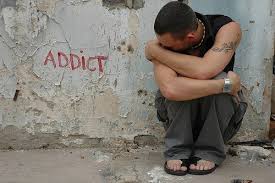 Most people have had moments of being embarrassed and perhaps even humiliation in their lives. This is usually a result of doing something we see as foolish or wrong, or perhaps even unethical and unsavory. It is not about the act of doing something wrong; it is the way we perceive the action and how our feelings and thoughts about the action reinforce feelings of inadequacy or inferiority.
Most people have had moments of being embarrassed and perhaps even humiliation in their lives. This is usually a result of doing something we see as foolish or wrong, or perhaps even unethical and unsavory. It is not about the act of doing something wrong; it is the way we perceive the action and how our feelings and thoughts about the action reinforce feelings of inadequacy or inferiority.
The Impact of Shame
For example, if you make a mistake in a speech and say something wrong, you may feel embarrassed or humiliated, and you may even feel guilty if you didn’t rehearse or practice. However, if you intentionally said something unethical, incorrect or misleading, you may feel a deep sense that you were wrong in your intent, particularly if it created a problem for someone else.
Children can grow up in an environment of shame. In dysfunctional families where addictions or codependency is an issue, it is easy for children to see themselves as unloved, unworthy, inferior or even inadequate. In other words, it is not their actions, but their whole being that is the cause of their shame. Constant belittling, criticism and even neglect and isolation all enhance this sense of inferiority and shame that becomes a central part of the individual’s way of seeing her or himself.
In an article in The Guardian, researcher Paul Gilbert at the University of Derby discusses the dangers of internal shame, also called toxic shame. He defines this is a “deep hatred of yourself” and a condition where you “don’t want to be the person you are.”
Researchers at Harvard Medical School have determined that this high-level toxic shame is often associated with early abuse in childhood, which can be physical, emotional or sexual in nature. These researchers propose that the exposure to the neurological changes that shame creates, can actually negatively impact neurological development.
Shame and Addiction
Individuals with a deep and ongoing shame of themselves are, by nature, isolated with deep and closely held feelings of being unworthy and unlovable. This, in turn, is linked to depression, and the use of alcohol and drugs is often initially a form of self-medication.
Additionally, the use of alcohol and drugs creates further feelings of shame. They also lower self-esteem and contribute to the constant cycle of seeing yourself as inferior or unable to cope. This downward spiral can only be stopped by a significant and powerful intervention.
People that feel unworthy of being helped, or even asking for help, rarely seek professional services on their own, but often they will seek help for addiction when prompted by family and friends.
To address the link between shame and addiction, it is important to start by working with a psychotherapist or recovery coach highly experienced in these areas for either individual psychotherapy or group psychotherapy.
· Recognizing shame – recognizing when shaming is going on in the thoughts is critical. Learning to see mistakes as behaviors and not as a reflection of self-worth is essential to break the cycle.
· Accepting self – learning to define yourself as a positive, worthy person is essential for recovery. Through therapy, you can learn to see value and worth in yourself and even uncover the causes of early shame that may have started in childhood.
· Making connections –reconnecting with family, friends, and coworkers is essential to see yourself as part of a loving network. Learning to accept these people love you and see value in you can be difficult, but through therapy it is possible.
Breaking the cycle of shame and addiction and severing the link in your life is essential for healing. Working with an experienced therapist in this area is one of the most positive things you can do for yourself and a gift that will provide a high return on your investment.
She helps singles navigate the dating process to find the love of their lives. Take her quiz to find out if you’re a love addict, sign up for a 30-minute strategy session, or learn more about how to get over a break up. Sherry maintains a private practice in Westlake Village, and is a sought after online dating and relationship coach. For more information visit www.sherrygaba.com of sign up today for Sherry’s online group coaching program for $19/month https://

